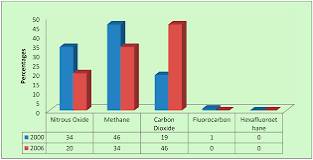Causes of Change in Weather Patterns in Ghana
Ghana, located in West Africa, has experienced significant changes in its weather patterns in recent years. These alterations have profound implications for agriculture, water resources, and public health. Understanding the causes behind these changes is essential for developing effective adaptation strategies. The primary drivers include climate change, deforestation, urbanization, and land use changes.
Climate Change
One of the most significant factors contributing to altered weather patterns in Ghana is climate change. Globally, rising temperatures and shifting climatic zones have led to unpredictable weather events. In Ghana, this manifests as changes in rainfall patterns, prolonged dry seasons, and increased frequency of extreme weather events such as floods and droughts. The Intergovernmental Panel on Climate Change (IPCC) has indicated that West Africa is particularly vulnerable to these changes, with Ghana being no exception. The average temperature in Ghana has risen, exacerbating evaporation rates and affecting the agricultural sector, which is heavily reliant on consistent rainfall.
Deforestation
Deforestation in Ghana has been rampant, driven by agricultural expansion, logging, and infrastructure development. The loss of forest cover affects local climates by altering humidity and temperature levels. Trees play a critical role in maintaining moisture in the atmosphere through a process known as transpiration. When forests are cleared, the reduced number of trees leads to less moisture, resulting in drier conditions. Additionally, deforestation disrupts the local ecosystem, reducing biodiversity and impairing the natural balance that helps regulate weather patterns.
Urbanization
Ghana has witnessed rapid urbanization, particularly in cities like Accra and Kumasi. Urbanization significantly impacts local weather patterns through the urban heat island effect, where urban areas become significantly warmer than their rural surroundings. The concentration of buildings, roads, and other infrastructure traps heat, leading to increased temperatures in these areas. Furthermore, urban development often alters natural drainage systems, leading to increased flooding during heavy rains. The expansion of cities also puts pressure on surrounding agricultural lands, leading to changes in land use that can further disrupt local climates.
Land Use Changes
The transformation of land from natural habitats to agricultural or urban areas alters the earth's surface properties, which in turn affects local weather. In Ghana, the conversion of forests and wetlands for agriculture and urban development disrupts the natural balance of the ecosystem. Intensive farming practices, including monoculture and the use of chemical fertilizers, can degrade soil health and reduce its capacity to retain water. This contributes to increased runoff and soil erosion, leading to sedimentation in rivers and lakes, which can alter local hydrology and further affect weather patterns.
Global Influences
While local factors play a significant role, global phenomena also impact Ghana's weather. Events such as El Niño and La Niña influence rainfall and temperature patterns across the globe, including West Africa. These climate oscillations can lead to variations in seasonal weather, causing droughts or heavy rains. As the world continues to grapple with climate change, the impacts of these global phenomena are expected to become more pronounced, further complicating weather patterns in Ghana.
Conclusion
The changes in weather patterns observed in Ghana are the result of a complex interplay of local and global factors. Climate change, deforestation, urbanization, and land use changes significantly contribute to the variability in weather. These shifts have serious implications for agriculture, water resources, and public health, making it imperative for policymakers and stakeholders to adopt comprehensive strategies for climate resilience. By addressing the root causes and implementing sustainable practices, Ghana can mitigate the impacts of these weather changes and build a more resilient future for its population.



No comments yet
Be the first to share your thoughts!